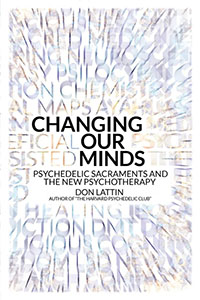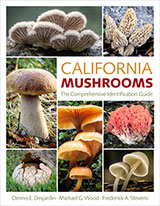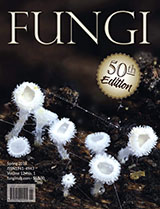Book Review
Changing Our Minds: Psychedelic Sacraments and the New Psychotherapy
“The coming psychedelic renaissance has its roots in both the laboratory and the jungle. It is both scientific and shamanic.” There is a quiet revolution underway in our understanding of how psychedelic drugs work and how they can be used to treat depression, addiction, and other disease.
Meanwhile, from shamanic circles in the Amazon to underground “tribes” in cities across the USA, a new generation of consciousness explorers have embraced psychedelic plant and fungal compounds as a means to promote psychological and spiritual growth. The stories behind this cutting edge medical research, which over a few short decades has experienced great interest, then abandonment following legal crackdown, and now renewed interest, are fascinating to me as a scientist. Those stories, along with many first-hand accounts of religious exploration and patients seeking help from very serious problems like drug/alcohol/tobacco addiction and war veterans suffering from PTSD reveal the human side of a psychedelic renaissance.
In his new book, Changing Our Minds: Psychedelic Sacraments and the New Psychotherapy, veteran journalist Don Lattin offers an engaging look at the recent history and credible prospects for using magic mushrooms—psilocybin— along with other naturally-occurring psychedelic compounds like ayahuasca (a source of DMT), mescaline (from peyote cactus), 5-MeO-DMT (from the skin of the Colorado river toad), and LSD (which is synthesized but has its roots in compounds derived from fungal alkaloids), as well as purely synthetic ones like MDMA (“ecstasy”) and ketamine to treat mood disorders and promote spiritual well-being.

Lattin profiles neuroscientists, psychotherapists, volunteer research subjects, and ordinary people looking for safe and sane ways to cultivate psychedelic insight. At the end of the book, Lattin recounts his own journey to find an alternative treatment for depression, a trip that took him from a Swiss neuroscience lab to the South American jungle.
This book is extremely well researched and written. Don Lattin is an awardwinning author and journalist. His five previously published books include The Harvard Psychedelic Club, a national bestseller that was awarded the California Book Award, Silver Medal, for nonfiction. His feature articles have been published in dozens of leading magazines and newspapers, including The New York Times and San Francisco Chronicle, where Lattin worked as a staff writer for twenty years.
This book makes many very strong cases for the governments of the world to take another look at laws that up to now have tamped down research on psychedelic compounds, despite mountains of evidence showing them as safe and useful treatments (in controlled settings) for people who could really benefit. Despite hardships, several researchers have made tremendous inroads. Take for example Dr. Matt Johnson at the prestigious Johns Hopkins University using psychedelics to treat drug/alcohol/tobacco addiction. There is strong evidence that a single compound (oftentimes given in a single dose or session) can treat addiction. Many kinds of addiction. Maybe all addiction—and Lattin explains the psychology of how addiction works in the mind. Lattin: “What’s amazing, or at least different, about using psychedelics to treat addiction is the way they point to a new pharmacological approach. [Quoting Johnson]: ‘We are not just talking about the narrow effects of a particular drug on another particular drug … we can block the addictive drug’s effects at the brain’s receptor sites by substituting or antagonizing at the receptor—to reduce specific cravings for the drug. … we are talking about addiction rather than just alcohol addiction or nicotine addiction’…”
This book is a great review of early pioneers of research and discovery: Sasha Shulgin, Timothy Leary, Albert Hofmann, Richard Evans Schultes, and many other household names. But Lattin also chronicles many of the current researchers like Matt Johnson, Roland Griffiths, Stanley Grof, Mary Cosimano, Franz Vollenweider, and David Nichols. Lattin also gets perspective from other prominent proponents of psychedelic research. And we’re not talking kooks, these are some of the great minds of today who understand the science behind these compounds (no, they’re not “gateway drugs,” and many of them are neither toxic nor addictive in any way), for example Robert Jesse, a former Vice President of Oracle, the second largest software company in the world, and Bill Linton, CEO and founder of molecular biotech giant Promega Corporation. (Never heard of Promega? It’s unlikely that a single DNA sequence analysis is conducted nowadays without the use of one or more chemicals purchased from Promega.)
There is a quiet revolution underway in our understanding of how psychedelic drugs work. Changing Our Minds should be required reading for those who oversee regulation of these drugs for scientific research. It just might change their minds.— Review by Britt Bunyard
— Originally published in Fungi


